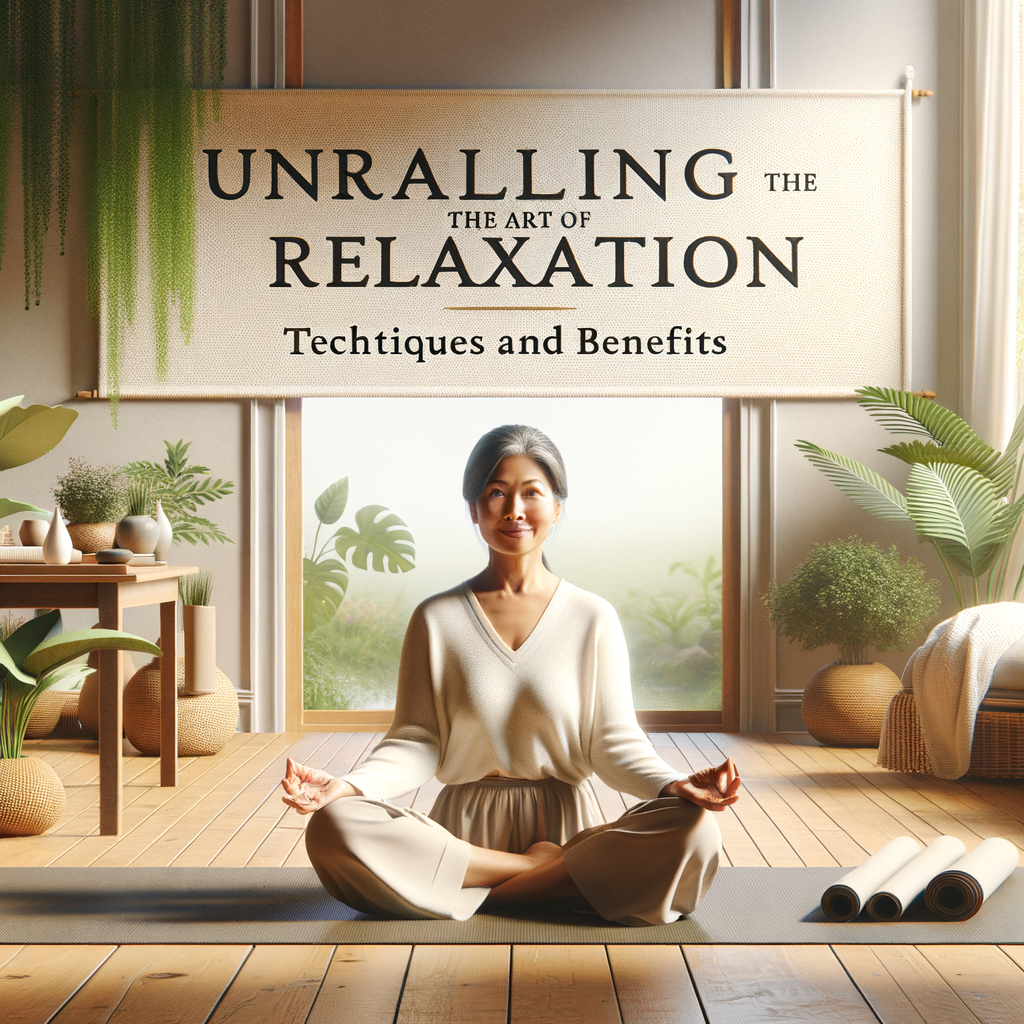Physical Address
304 North Cardinal St.
Dorchester Center, MA 02124
Physical Address
304 North Cardinal St.
Dorchester Center, MA 02124

Relaxation, as an integral aspect of our lives, often takes a backseat amidst our hectic schedules. However, it is crucial to understand the significant role relaxation plays in maintaining physical and mental wellbeing. This article aims to shed light on various relaxation techniques and their benefits.
Before diving into the techniques, let’s first comprehend why relaxation is vital. In today’s fast-paced world, stress has become a common phenomenon affecting people across all age groups. Chronic stress can lead to severe health problems like heart disease, high blood pressure, diabetes, depression and anxiety.
That’s where relaxation comes into play. It not only helps reduce stress but also improves mood, boosts energy levels and enhances overall health and wellbeing.
There are numerous ways to achieve relaxation. Here are some effective methods:
Meditation is a practice that involves focusing your mind on a particular object or thought to achieve mental clarity and emotional calmness. The beauty of meditation lies in its simplicity – you can meditate anywhere at any time without any special equipment.
Breathing exercises such as deep breathing or diaphragmatic breathing are powerful tools for relaxation. By focusing solely on your breath, you can divert attention from stressful thoughts and attain a peaceful state of mind.
This technique involves tensing specific muscle groups in your body and then releasing the tension. Progressive muscle relaxation promotes physical calmness which subsequently leads to mental peace.
An ancient Indian practice, Yoga combines physical postures, breathing exercises and meditation. Regular yoga practice can help reduce stress, improve flexibility and enhance overall health.
Now that we’ve discussed various relaxation techniques let’s delve into the benefits:
Relaxation techniques such as meditation and deep breathing can significantly reduce stress levels. They also help manage symptoms of mental health disorders like anxiety and depression.
Relaxation not only impacts mental health but also physical health. It helps lower blood pressure, improves digestion, reduces muscle tension and enhances sleep quality.
By reducing stress and improving mental clarity, relaxation techniques can boost productivity. A relaxed mind is more focused and efficient, leading to better performance at work or school.
Incorporating relaxation into our daily routine is essential for maintaining a balanced lifestyle. Whether it’s through meditation, breathing exercises or yoga – finding a technique that suits you best is crucial. Remember that the goal isn’t to completely eliminate stress but to learn how to manage it effectively. So take some time out for yourself every day to relax and rejuvenate – your mind and body will thank you!